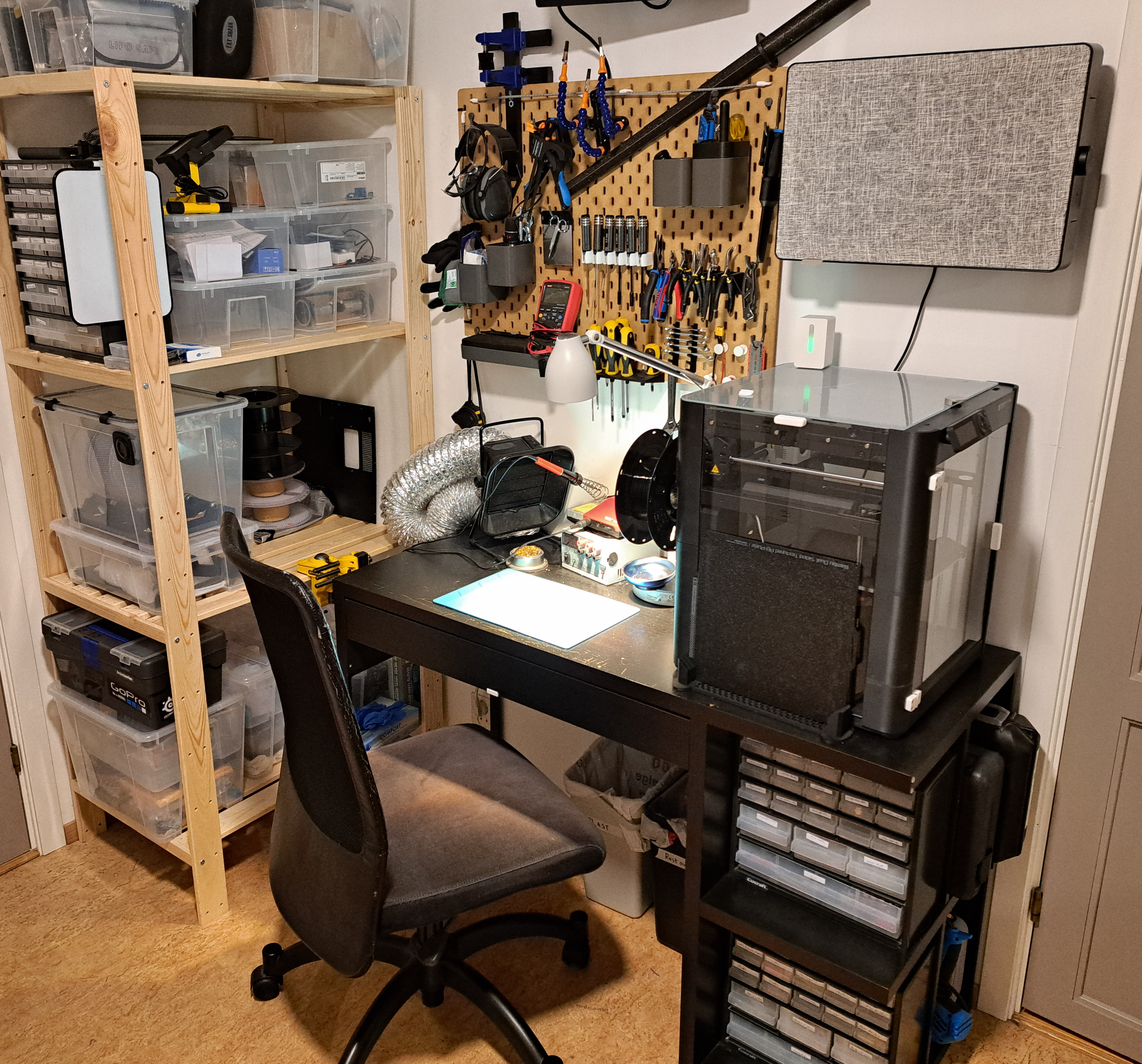The Workshop
The Workbench
-

-
The "tiny and well equipped" workbench consists of a wide range of hardware tools and electronics equiptment, for beeing a home-made workshop.
The most used tools are the 3D-printer, soldering station, DIY bench power supply, multimeter, debugging tools, other programmers, and a simple logic analyzer.
In addition the workbench has a small range of ready to use microcontrollers and electronic components for rapid prototyping, and storage for on-going projects.
- 3D-Printer: Bambu Lab P1P
-
The first 3D-printer in the house, with an unofficial enclosure solution.
Software
- Slicer: Bambu Studio
-
The default slicer software for the Bambu Lab 3D-printer is sufficient enough with interesting solutions to my printing needs, and is based on the populare open-source tool Orca Slicer.
- CAD / 3D-Model: Onshape
-
Intuitive CAD tool used for 3D-modelling. I would compare it with the quality of Fusion 360 in user-friendliness and useability.
- PCB: KiCad EDA
-
Open-source electronics design software for PCB development, including schematics, PCB layout, and 3D-modelling. Everything I would need from a PCB design tool.
- IDE: Visual Studio Code
-
Probably the most used IDE now a days, and with useful extensions it is hard to beat it.
The main extensions I use:
- C/C++ by Microsoft
- PlatformIO IDE by PlatformIO. Userful for prototyping new microcontrollers and boards.
- Docker by Microsoft. Always nice to have a development environment packed into a container.
- Embedded IDE: PlatformIO IDE
-
The PlatformIO IDe is built into Visual Studio Code. However, it is worth mentioning. As a complete IDE for embedded software development, making it the easiest/fastest to get started if you tend to do prototyping and develop with different embedded environments and systems.